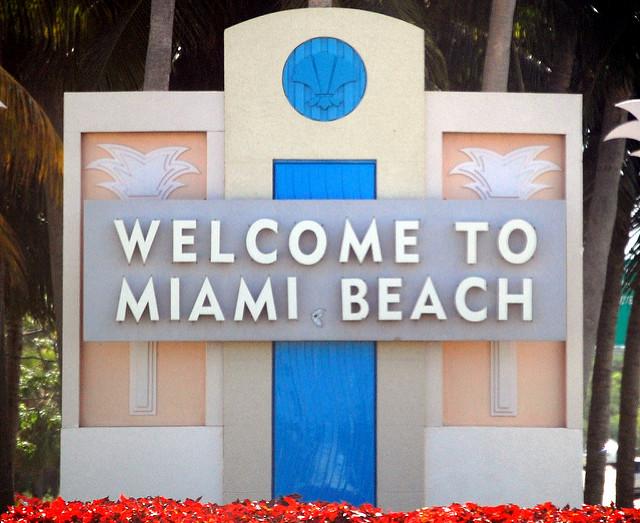More Aedes aegypti mosquitoes were found in Miami Beach traps over the weekend as Florida reported new cases of locally acquired Zika virus over the past few days, some in people whose exposure is unclear, according to the Miami Herald and the Florida Department of Health.
Meanwhile, a new report from Brazil profiled microcephaly patterns and general disease trends in different parts of the country in the first half of 2016.
Traps show mosquitoes still in Miami Beach
Despite more than a month of ground and aerial spraying, officials in Florida reported that a trap in Miami Beach showed Aedes mosquitos harboring the Zika virus over the weekend. This was the sixth Zika-positive mosquito pool found in Miami Beach since Aug 19, and the first to show Zika-carrying bugs in the Mid-Beach neighborhood (the previous five mosquito pools were found in South Beach), according to the Miami Herald.
The trap was located at 575 W. 49th street, near the La Gorce Golf Course. More than 64,000 Florida mosquitos have been tested for Zika virus since May; only the six pools in Miami Beach have tested positive for mosquitos carrying Zika virus.
This was the first time health officials released the location of the traps as soon as samples tested positive, a move promoted by the Herald's Sep 28 lawsuit that demanded the state release the location of traps that tested positive for Zika.
The news comes after Florida Health, the state's Department of Health, reported five more cases of locally acquired Zika virus on Sep 30 and nine more cases today. All nine cases were in Miami-Dade County; seven people had exposure in Miami Beach, and exposure in the other seven cases is currently under investigation.
Also, Florida Health reported one more infection in an out-of-state resident who was exposed to Zika in Miami-Dade County and three new cases in those who traveled to both Miami-Dade County and countries where the virus is circulating, so exposure location can't be definitively pinned down.
The state now has recorded 133 local cases, 16 in out-of-state people, and 4 of undetermined exposure source.
Currently, Miami Beach is the only active Zika transmission zone in Florida, and the Centers for disease Control and Prevention (CDC) recommends pregnant women avoid all unnecessary travel to the 4.5 mile area in the heart of Miami.
Brazil microcephaly patterns
In other Zika news, a new study in the journal Travel Medicine and Infectious Disease described Zika-linked microcephaly trends in Brazil, the country that's been hit hardest by the mosquito-borne illness. Though Zika virus transmission has declined in the second half of 2016, the new study extracted data from epidemiological reports from the Secretary of Health Surveillance of the Brazilian Ministry of Health (MOH) and paints a much more volatile picture, with different regions reporting different transmission trends.
Between November 2015 and July 2016, 8,301 cases of microcephaly or congenital birth defects have been reported in Brazil, mainly in the Northeast region of the country. New reports of microcephaly have declined since February of this year, except in the Southeast region. The number of microcephaly cases under investigation still accounted for 37.7% of all reported cases by July of this year.
"Based on the results of the present analysis, the current incidence of new confirmed cases in Brazil from January to July 2016 is 9.7 per 10,000 live births. The true incidence is probably higher, as fully one-third of reported cases remain under investigation," the authors wrote. "Moreover, a great discrepancy is still observed between the Northeast and the Southeast, despite the similar number of reported Zika virus cases in both regions in the same period."
Cases of Zika virus in the general population have decreased in the country as a whole except in the Northern region, where cases were on the decline until May saw a spike of newly confirmed cases. There have been 165,932 cases of Zika reported in Brazil between Jan 3 and Jun 11, with as many as 12,336 cases being reported each week.
See also:
Oct 1 Miami Herald story
Sep 30 Florida Health update
Oct 3 Florida Health update
Oct 1 Trav Med Infect Dis study





















